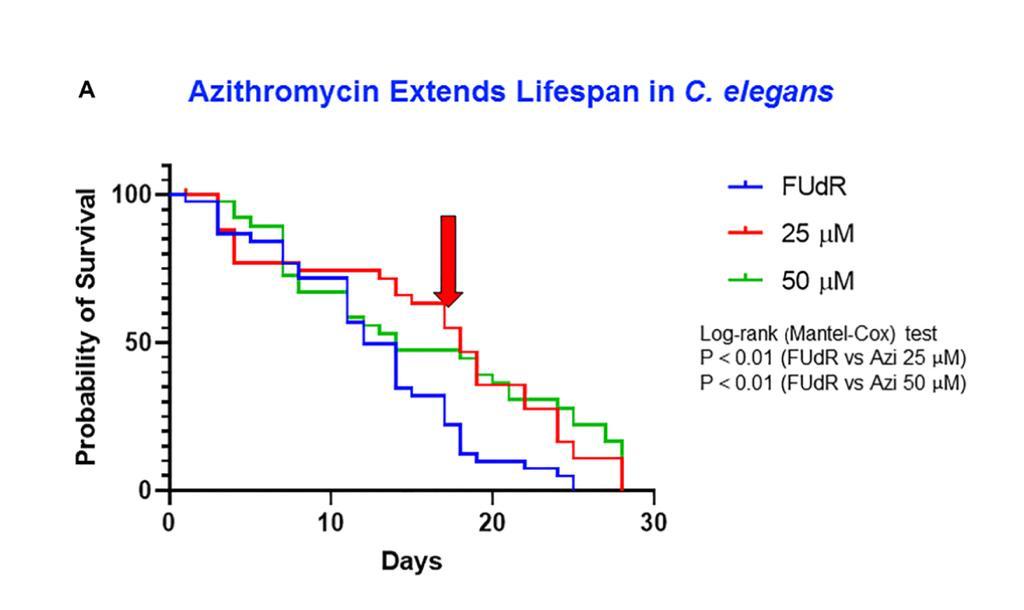Mitochondrial Inhibitors Extend Lifespan in C. elegans

Doxycycline extends lifespan of C. elegans
A recent study led by Bonuccelli et al. at the University of Salford delves into the impact of mitochondrial inhibitors on aging, using the model organism C. elegans.
Key Findings:
-
Mitochondrial Ribosome Inhibitors:
- Doxycycline and azithromycin significantly increased C. elegans’ median lifespan.
- Improved pharyngeal muscle function and reduced lipofuscin accumulation were observed.
-
Energy Dynamics:
- Treated worms exhibited reduced ATP consumption, suggesting lower energy expenditure.
-
Mitochondrial Complex Inhibition:
- DPI, inhibiting mitochondrial complex I and II, prolonged median lifespan.
-
Vitamin C’s Contradiction:
- Vitamin C did not extend lifespan and resulted in higher ATP levels, highlighting complex interactions.
In summary, mitochondrial inhibitors, especially those affecting ribosomes and complex I/II, show promise in extending C. elegans lifespan. These findings offer valuable insights into the intricate relationship between mitochondrial processes and aging.
Photo Credits: Bonuccelli et al. Aging (Albany NY). 2023
Share this with your circle